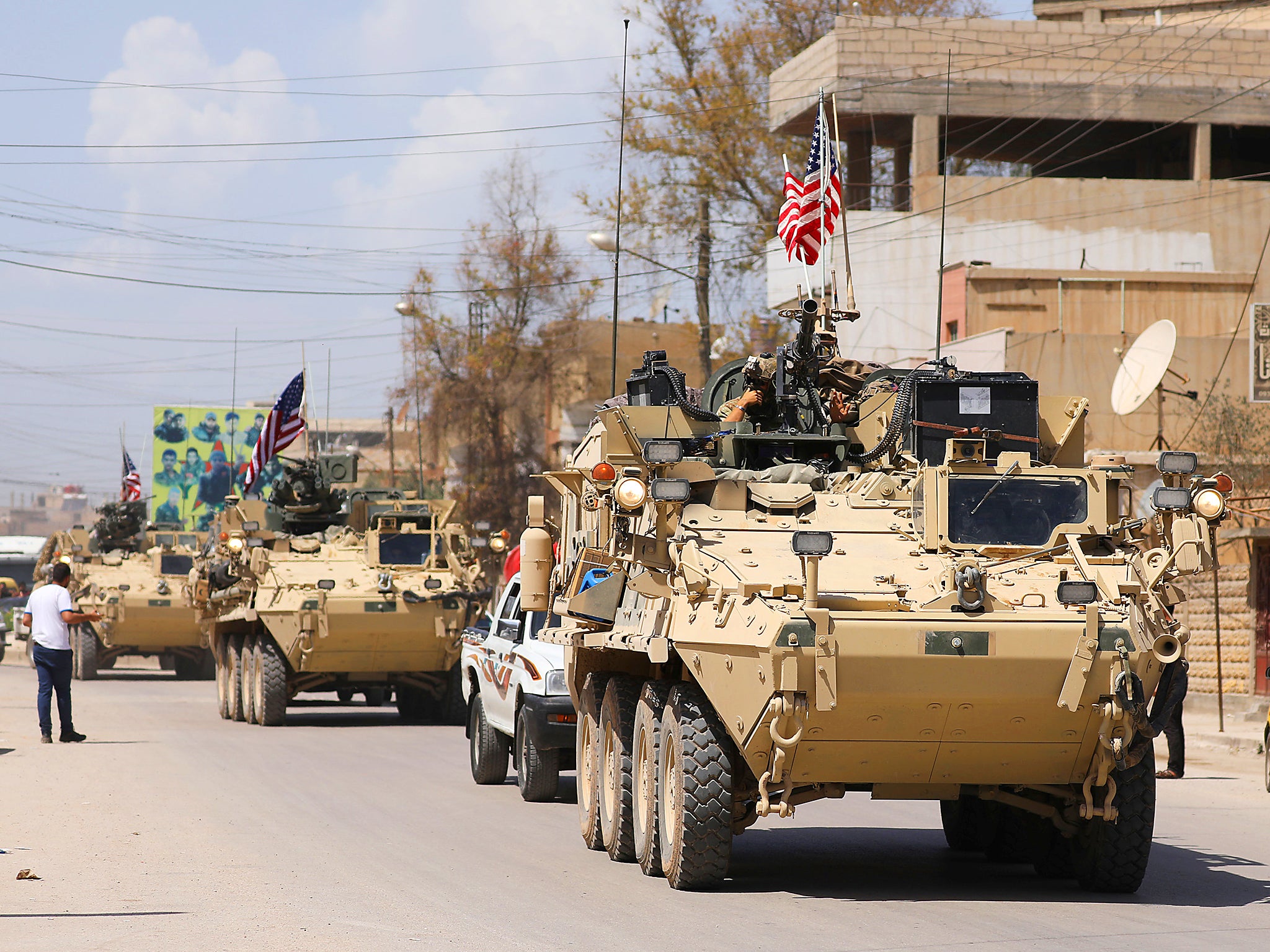Global Peace Index: US facing new era of instability as Middle East sinks further into turmoil
Syria, Iraq and Yemen unsurprisingly listed among world's least settled nations

Your support helps us to tell the story
From reproductive rights to climate change to Big Tech, The Independent is on the ground when the story is developing. Whether it's investigating the financials of Elon Musk's pro-Trump PAC or producing our latest documentary, 'The A Word', which shines a light on the American women fighting for reproductive rights, we know how important it is to parse out the facts from the messaging.
At such a critical moment in US history, we need reporters on the ground. Your donation allows us to keep sending journalists to speak to both sides of the story.
The Independent is trusted by Americans across the entire political spectrum. And unlike many other quality news outlets, we choose not to lock Americans out of our reporting and analysis with paywalls. We believe quality journalism should be available to everyone, paid for by those who can afford it.
Your support makes all the difference.An annual global peace index has concluded that US political turmoil had pushed North America into deep instability in 2016 while the Middle East sank deeper into turmoil.
Despite depicting tumult across continents, the 2017 Global Peace Index said the world had overall become more peaceful in the past year when measured against a range of indicators.
“Although this year's up-tick is reassuring, the world is still mired with conflict in the Middle East, political turmoil in the US, refugee flows and terrorism in Europe,” said Steve Killelea, founder of the Sydney-based Institute for Economics and Peace (IEP), which produces the index.
Three out of the five least peaceful countries - Syria, Iraq and Yemen - are in the Middle East, and Syria retained the top spot of least peaceful country for the fifth year in a row.
Saudi Arabia's rivalry with Iran has made worse an already volatile region, contributing to the length of the Syrian civil war and to Saudi Arabia's involvement in the Yemen conflict, where both countries back opposing sides, the index said.
It measures 23 indicators including incidents of violent crime, levels of militarisation, weapons imports, as well as refugee tallies and the number killed in internal conflict.
Syria retained its overall top spot in the index.
About half a million people are estimated to have been killed in Syria's six-year civil war, which has dragged in regional and world powers and caused the biggest refugee crisis since the Second World War.
Yemen has been shattered by a conflict in which the Saudi-led coalition has carried out almost daily air strikes in support of Yemeni government efforts to recover territory.
Violence, famine and disease have killed more than 10,000 people since the start of the conflict, the United Nations says.
Many countries in the Middle East and North Africa, however, became more peaceful in 2016, including Morocco and Iran, where political stability has increased, the index said.
Meanwhile, political stability in the United States dropped as the presidential campaign that elevated Donald Trump to the White House highlighted deep divisions within society.
“While the true extent of such significant political polarity in the US will take years to be fully realised, its disruptive influence is already evident,” Killelea said in a statement.
“Increasing inequality, rising perceptions of corruption, and falling press freedoms have all contributed to this substantial deterioration in the US and an overall decline in peace in the North America region,” he added.
Iceland is the world's most peaceful country listed in the index, followed by New Zealand, Portugal, Austria and Denmark.
The report concludes that just four countries - Botswana, Chile, Mauritius and Uruguay - are not currently involved in armed conflict, down from ten in 2016.
Copyright Reuters
Subscribe to Independent Premium to bookmark this article
Want to bookmark your favourite articles and stories to read or reference later? Start your Independent Premium subscription today.
Join our commenting forum
Join thought-provoking conversations, follow other Independent readers and see their replies
Comments